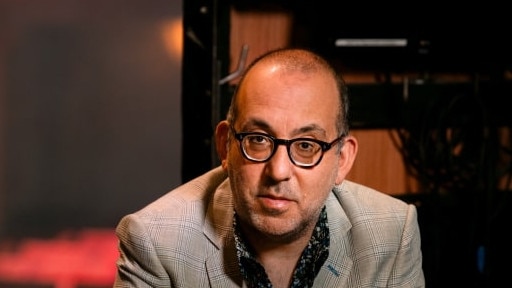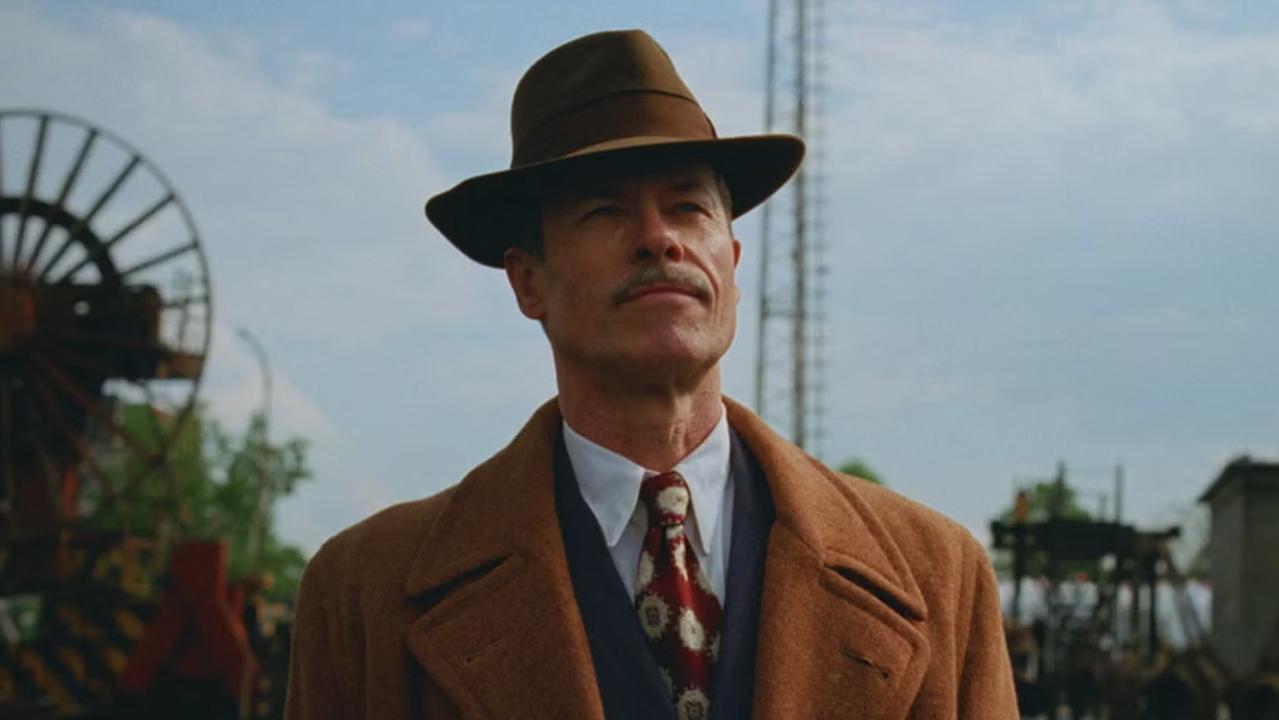The expat says we just don’t know how to support our actors
The expat theatre and opera director keeps pushing the boundaries at 56.

“Don’t talk about Nabucco, please,” Barrie Kosky says as the questioners get to their feet after almost two hours of conversation from one of Australia’s most famed expat theatre and opera directors.
Kosky, appearing at an event in Sydney on Tuesday, is joking, but his audience knows the reference to Verdi’s opera was no laughing matter back in 1995 when the first-night patrons booed his production at the Sydney Opera House.
Then again, extreme reactions to his work were par for the course 30 years ago as Australians were equally thrilled or appalled by an artist who always seemed too big for our culture. Indeed, he was set for a much larger stage, departing in the 1990s for Europe, including 10 years as director at the Komische Oper in Berlin.
He left that post 12 months ago but continues to work as one of the most important opera directors in the world. His production of Dialogues des Carmelites, described by critics as “enthralling” and “audacious”, is the hot ticket at Glyndebourne this northern summer.
This week he took to the stage for a performance as himself, in conversation with Sydney Theatre Company artistic director Kip Williams, to reflect on culture and his career.
Kosky has been critical of Australia, most recently telling The Telegraph in Britain that Australia’s funding of the arts is a “disaster”, but on Tuesday night in Sydney he is slightly more guarded in his comments, saying he will not compare his experience in Germany with Australia because they are “two different planets”.
He says it is hard for Australians who haven’t been to Europe or worked in Germany to grasp the “enormous difference, not just culturally and artistically or theatrically but also in the structures of (arts) companies”.
German companies employ actors and musicians on lifetime contracts, creating large, stable ensembles, he says. Funding is generous, with the city of Berlin alone giving €600,000 (almost $1m) a year to its arts institutions. The federal arts budget is more than €5bn. The city, he says, subsidises each theatre seat to the tune of about €250 a night because Germans see it as a cultural duty to ensure no citizen misses out because they cannot afford a ticket.
The levels of arts funding in Germany and France and Russia are “unimaginable” to Australians, Americans and the English. As well, in Germany there is absolutely no interference in programming and no difference in funding whether right or left politicians are in power, he says.
“Because of the history of the middle of the 20th century (Germans) have a pathological conscious and unconscious philosophy of not interfering in artistic endeavours,” he says. “No German politician would dare publicly to express a negative opinion about something that he or she is funding.”
Funding is not seen as something handed out at the “whim” of politicians. “The attitude is we appoint you, you know what the structures are, as long as you don’t go into debt and you present work that seems to work, we aren’t saying anything,” Kosky says.
“There’s no annual report, artistically, there’s no real overseeing of what the company is doing. There’s no sense of being looked at, from above, by stupid people.”
Lamenting the lack of funding here, Kosky says: “This country still hasn’t got around to the idea that it’s very hard to create great work continuously if you’re living under the threat of financial doom.”
Australia, unlike European countries, does not give its actors the level of respect and support they need to be able to make a living from theatre, he says. Thus actors live “hand to mouth” and never have the opportunity to work in ensembles where they hone their craft. The end result is many wonderful Australian actors just “give up” and leave the industry.
Kosky says there is a huge crisis in theatre that has been buiding for years and can be seen in all the major theatre companies in the world.
Theatre-makers have been struggling with questions such as: “Am I making a well-made play here? Am I making a play about social issues that happens to have a narrative attached to it? Am I rewriting classics? As we know, some of our great exports (are doing this). Am I microphoning all the actors all the time to sort of mumble like a Netflix show … in a Perspex box?
“So do we make theatre more like film, do we make it more like television, what is the price you pay for that?
“I see a big struggle with a lot of young actors and young theatre-makers saying: ‘We need to completely destroy the canon, start again.’ ”
But while a younger generation needs to “detonate” the work of the older generation, it still has to retain “the bits and pieces, and bricks and stones and dust of the past, which must infuse the work”.
“It’s nonsense to say: ‘I’m not interested in the entire 3000 years of European theatre, I’m only interested in my feelings about what I feel,’ ” he says.
“What I’m seeing now in Europe … is the rejection of large narrative pieces and large character pieces and a lot of work ‘about’ something.”
But theatre has to return to the idea of “circus … the danger of watching the performer on a tightrope each night, and they can fall off. And that cannot be done, thank goodness, by … technology, that cannot be done by the internet.”
Kosky warns that while every theatre director wants to attract a younger audience, this can never be at the price of alienating the core, older audience, which has the free time and the disposable income to go to the theatre.
Kosky says there is a complicated debate under way in Germany about gendered pronouns and moving to non-gendered grammar, “which for the French and the Germans is almost impossible to conceive because the language is their identity, and history is embedded in the language in a way that we can’t even conceive”.
The “horrifying” result is that neo-Nazi politicians are winning votes on the promise of not moving to non-gendered grammar.
Kosky, raised in the Jewish faith, jokes that in a Berlin where the shadows of history remain, he sometimes resorted to “using the Jewish card” if he met any problems about funding.
More seriously, he tells the Sydney audience that Germany is obsessed with Nazis and the Holocaust and East Germany, and artists have to “negotiate” their way around these two dominating narratives.
“The shadow is impossible to ignore,” he says.



